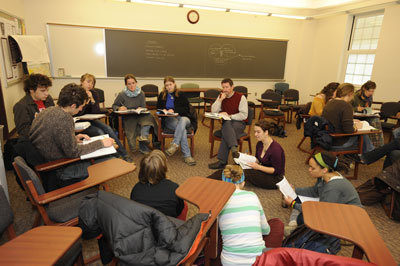For the last year or so, I have been working on a novel. Like many aspiring novelists, I have made progress in fits and starts, sometimes writing many pages in a sitting and other times not touching the manuscript for weeks at a time. Slowly and sometimes painfully, I have completed a little more than half the story.
Until a few weeks ago, I had not shared any chapters of my novel with anyone. Several people knew that I was working on a story, and I had shared the basic plot with them, but I didn’t want to share anything that I had written.
I am a big believer in the value of allowing other people to read and edit your work. Without question, every writer needs an editor. The more complex the writing, the more value a writer receives from allowing someone else to review and comment on their work. I give drafts of all my nonfiction work to my wife to read, and the final product is always better after hearing her feedback.
But there’s something about writing fiction that makes it so much harder to let others see the work in progress. I think it’s because we are much more vulnerable when writing fiction. Rejecting our story is not merely a rejection of our ideas, it’s a rejection of us as an author and as a person.
Despite my reluctance in sharing my writing, I knew that having others review my novel was a good thing, so I joined a fiction writing workshop. The workshop operates like most others in that you submit a portion of your work to the group, and the group provides feedback, both collectively and individually.
While I joined this workshop voluntarily, I still felt great trepidation about it. When the first few responses to my work were posted ahead of the group conversation, I opened the documents with nothing less than abject fear. What if they hated it? What if they laughed at me?
Much to my surprise, I was not voted out of the group. The feedback was incredibly valuable, and each person had taken the time and care to explain how they had reacted to the manuscript and what they noticed about the craft. I came away with encouragement that I was not an awful author, and I received some specific ideas for revision.
Equally valuable was the time I spent reviewing and providing feedback on the other authors’ stories. The process of carefully considering what I was reading and providing useful feedback gave me many ideas to help improve my own writing.
The author Brené Brown says, “No vulnerability, no creativity.” A writing workshop is the perfect place for writers to put this axiom into action. Giving up your writing to others—being vulnerable to their feedback—is the key to sparking the creativity that is essential to good writing.


J.J. Whitman
I am not worried about what people say about my writing. I am worried about people stealing my ideas and my writing.
J.J. Whitman
I am not worried about what people say about my writing. I am worried about people stealing my ideas and my writing.